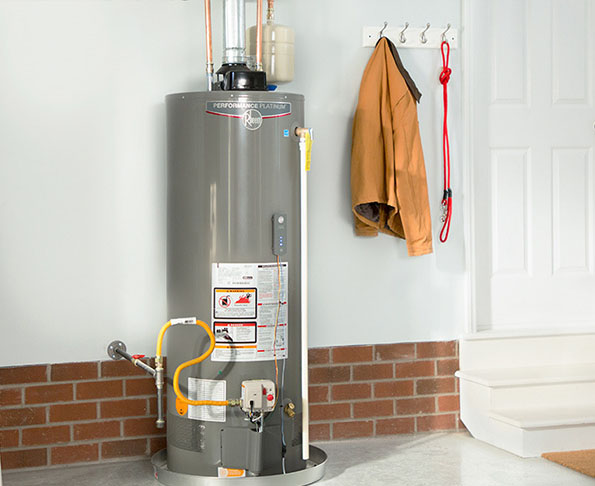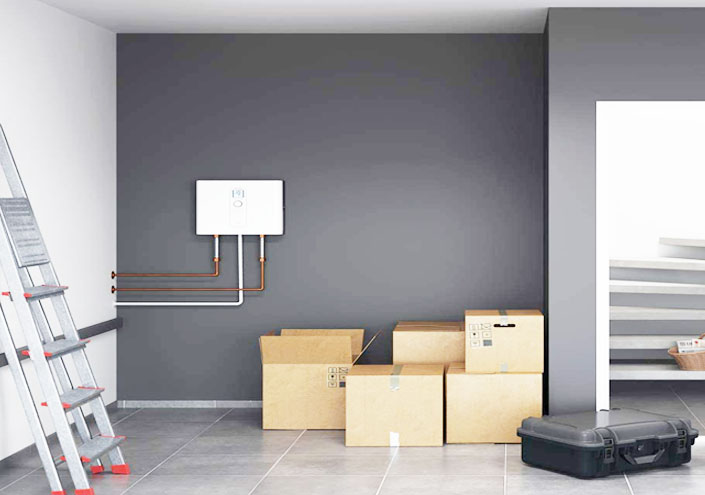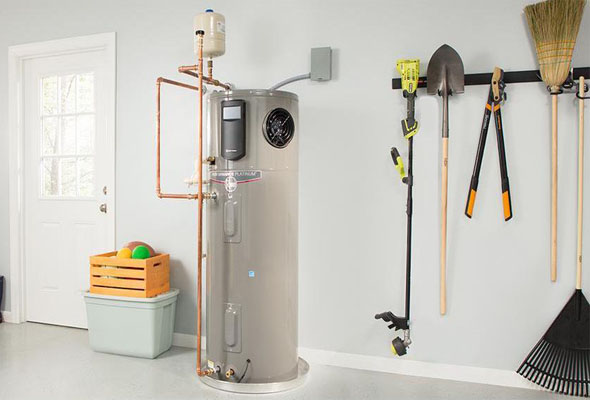While buying a water heater for your home, choosing the right size is important. We know, a beginner with no knowledge of buying water heaters before faces difficulty with its size. Apart from the sizing, such appliances’ functionality check is also important.
Therefore to help you out, we are going to guide you with expert tips on ‘how big of a water heater do you I need.’
We will tell specific details of the types and style of different water heater. To know more, keep on reading the guide below!
Factors that determine ‘how big of a water heater do I need’

What are the determiners of your water heater? Well, that is a pretty basic question with the simplest answers. Two major factors hold the size of the water heater. First is the demand for hot water in your household by your family member. Second, the water heater tank’s ability to produce hot water at a given time.
The former factor should be measured at the peak hour and the number of family members included. Whereas, the latter factor should be determined by the water heater’s FHR, or ‘first hour rating.’
Determining water heaters size by types
Tankless water heater:
Tankless water heaters are a boon to small bathroom spaces. As, they lack space due to the hefty tank. These are generally wall-mounted. So, is space is your concern, then we highly suggest to go for such heaters. These comes with less than half space consumption, unlike the tanked water heater.
As they don’t have any tank, so the water heating property is different from a tank-style water heater. Here, you don’t determine the size by the tank’s hot water holding capacity. Instead, the user flow rate is the main feature to determine the size of tankless water heaters.
Water flow rate is measured in gallons per minute (GPM). We will give you an estimate of how to choose the ‘size’ of a tankless water heater. Such as,
- shower of an average family (3/ 4 people) – 2.5 gpm
- Dishwasher, washing machine, bathtub – 3 gpm
- Sink faucet – 1.5 gpm
If you do any of these two or three works at the same time, then the requirement will add on. Suppose, if you wash dishes and fill the bathtub at the same time. Then you will need a 3+1.5= 4.5 gpm water heater.
Water heater with the tank:
These are the most generic water heaters in every household. Tank-styled water heaters’ sizes are technically easy to measure. The estimated size of the tank is determined by the number of people in the house. Because tank-style heaters pre-heat the water. And store the water in their large tank for further usage.
Now you can think, ‘how big of a water heater do I need?’ Let us look at an estimated water heater tank size based on family size:
- up to 2 people – 20-36 gallons
- up to 4 people – 36-46 gallons
- up to 5 people – 46-56 gallons
- above 5 people – above 56 gallons, adding 10 gallons per person
According to a survey, an average American family of 4 people requires a 40 gallons water heater tank.
See also:Direct Vs Indirect Water Heater – Let’s Find The Best One!
Other things to consider for buying the right size tankless water heater

The temperature of your environment: the environment’s temperature determines the water’s temperature too. In too cold regions, the water will definitely take more time to heat. Therefore, if you are living in a minus temperature area, then buy a tankless water heater. That too the one with more heating capacity. If your water does not reach the desired temperature, then you won’t benefit from buying big water heaters. That will be worthless to buy.
The flow rate of the heater: every tankless water heater comes with a flow rate chart. It determines the hot water usage by each individual per minute. A flow rate of 10 gpm is maximum for a tankless water heater. If you have several tasks to accomplish with hot water at once. Then, choose a minimum of 10 gpm tankless water heater.
The flow rate can also be determined by the distance from the outlet to the water heater. If the distance is more, generally, the flow rate will be less and vice-versa.
Other things to consider for buying a tank-style water heater:
FHR or first hour rating: with the tanked water heaters, determining the FHR along with the number of users is crucial. Because that tells us how much hot water a tank produces per hour when the tank is fully heated. It is one of the determiners of a traditional tanked water heater’s efficiency. With this, we know how much it can heat up during peak hours.
A 50 gallon water heater with an FHR of 80 will produce 80 gallons of hot water every hour. So, isn’t knowing FHR important?
Problems of buying too small or too large water heaters:
Now comes the main extract of our guide. This tells you why choosing the right water heater is important. Sometimes, people buy a water heater just because they like the design or some functions. But wise ones pay attention to the size. Everyone needs to know what problems they will face with a water heater if the correct size is not bought.
With too small water heaters, the very basic problem lies is, every member won’t enjoy hot water showers. Or even if they do, it will be very time-consuming. If a small capacity water heater bears pressure beyond its ability, then it will get malfunctioned. It will add up your cost of maintenance and repair. In the long run, your water heater will also stop working if this continues to happen.
Whereas, some users think buying a big size water heater will solve every problem. However, they don’t realize, it is increasing their unnecessary utility cost. Your electricity bill and water bill, both will increase. Buying too large water heater than your need will increase such cost. Also, water takes more time to get heated in a huge water tank.
Tips for Saving water with Big sized water heater:
Generally, when there is a big water heater, it means you have a large family or more chores to do. On the other hand, you want to save on water bills too. So, we are going to give you some tips on how you can save water bill and tons of water per year despite using a big size water heater.
- Always FIX the leaks: per second leak drop of water can increase your water bill by $1 a month. Even though it sounds insignificant, but if it continues and drips 60 drops per minute, then nearly 8.5 gallons of water will be wasted a day. Moreover, 260 gallons per month, and 3135 gallons a year! How crazy it is? And you can already tell the increase in utility cost per month due to one leak.
So, always fix the leaks as soon as possible. If you can’t immediately do it, then put a piece of gum or putty temporarily to stop the leak.
- Take showers and not baths: a warm bath can be relaxing, but on a daily basis they consume lots of water. You can go for showers for saving water which uses comparatively low warm water. If you have 2/3 kids of the near age, then you can go ahead and give them a bath all at once. So, you won’t have to turn on the shower several times.
- Shorten your shower time: of course, no one wants to get out of the hot shower on cold days. But if you are determined to save your water bill, then you need to get out as soon as possible. To feel warm, you can shut all the windows and doors so that the vapor does it for you.
- Set timer: for your electric water heater, try to set the timer for turning off when not in use. This will prevent unnecessary usage and pre-heating of the water.
- Use dishwasher and washing machine efficiently: try to wash as many dishes and clothes as at once. First, collect the dishes after everyone eats and laundry for 2/ 3 days at once, and then wash. Also, use minimal wash cycles for effective and efficient cleaning.
- Install heat traps: it is applicable for tanked water heaters that if you install heat traps inside the tank, you can save up to $20 on your monthly water bill! It’s not the job of an ordinary person who has no idea about such equipment, so you need to hire an expert hand. Apart from having an insulated tank, heat traps play like magic.
- Keep the temperature as low as possible: depending on your requirement and region, keep the water heater’s temperature low. You can save up to 5% energy bill by lowering 10% of the temperature.
- Don’t connect the heater with your toilet: it is quite unnecessary to do, but most people do it. NO ONE requires to flush hot water in the toilet every time. If you need hot water while cleaning the toilet, then pour that out from a separate bucket. Because a single flush consumes gallons of water. So think about how many flushes you need per day.
- Energy-star certified: Energy-star certified water heaters are proven to use 31% less energy and 33% less water! So, in this way you can double the utility cost of your house.
People who should consider buying a tankless water heater:
First thing first, for people who live in small apartments their bathrooms tend to be very small where barely a toilet fits. Therefore, they should buy tankless water heaters. In this way, they won’t have to compromise for using hot water plus their space will be saved too. Whereas, tank-style water heater varies in size with the water holding capacity.
Moreover, for the very busy owners who don’t get the time to maintain their water heater well, tankless water heaters free them from that duty. There is no hassle of cleaning tanks every month. Also, tankless water heaters are a great option for the average size family.
However, for those who have never bought a water heater before, it is better not to jump on a tankless water heater unless it’s not the only option. Because gpm measurement with tankless water heaters is quite tricky. Not only this, tankless water heaters are expensive to buy too. So, you don’t want your money to get wasted and the appliance doesn’t come in use.
Look out for the fuel type of your new water heater:
Apart from the size of your water heater, the fuel type it runs by is also important to know. If you already had a water heater then you already know. However, if you are newly buying it, make sure you find out whether the fuel type of your water heater is supported by your area or not.
Usually, there are two types of common fuel heaters, natural gas, and electricity. However, there are a few other types of fuels like geothermal energy, solar power, oil, or propane. Depending on your area’s requirements, you can choose any of the fuel types.
Different types of fueled water heaters have different installation process, so either way, hire a plumber for that.
Renting VS Buying a water heater:
Both situations have different advantages and disadvantages.
- For renting:
If you are a new buyer of a water heater, then you can rent a water heater with rent payments per month. In this way, you can try the water heater to know whether it works for you or not. This is the biggest advantage of renting because you won’t have to pay hefty upfront money and find it doesn’t work for you after several uses. You can later buy the heater if that meets your demand.
The disadvantage of renting is that, if by chance the system gets disrupted, you have to pay for the entire repairing. Even though it was not your fault, but the heater was your responsibility.
- For buying:
Even though, buying costs a lot upfront, still you won’t have to make monthly payments. Hassle is finished in one go! You will start to gain the benefits of buying a water heater a few years after. After buying, it becomes your asset. So, repair and maintenance are up to you. Therefore, buy a good-quality water heater along with everything being correct.
Locating the water heater right in the bathroom:
The exact location of your water heater depends on where your outlet pipes are located from which the electricity/ hot water will flow. This can be well-determined by a plumber if there was no water heater in your home before.
However, if your home had one installed before, then finding the location is a piece of cake. Until, the new heater does not have a different fuel source than the previous one. As we have said before, the fuel type of water heater determines the installation process, so does the mounting location.
Therefore, it is better to hire a plumber for once. Even if your heater came with a manual, but not everyone can get the technical languages. You might end up mixing wires ad connections if you have no previous experience with such things.
Some Important FAQs:
We have got some important queries which are most commonly asked by the users. If you are a new user or are going to buy a water heater, this section might help you to clear your questions too.
- Do big size water heaters cost much?
This is not true that the price increase with the size of the water heater. The cost of such appliances is depended on its features and functions, and how much long-lasting it is. A water heater from a well-known and trusted manufacturer with the slightest functions will cost more. That too, compared to a non-branded water heater with extravagant features.
Why so? Simply because the former ones’ water heater is more reliable and durable, and will require less maintenance in its lifetime. Even though the low price is what most public look for, but that should not be the only motive.
- How often should water heaters be cleaned and maintained?
Do you know a few minutes of cleaning time to your water heater every month can increase its life span? It does not take much effort or time, just 15 minutes once or twice a month to clean your water heater is enough. If your water tank has an easy opening, then you can ace in cleaning after a few times. Simply, you can get the help of an expert.
Also, you have to make sure you are familiar with all the parts inside so that they are not harmed during cleaning. Apart from routine cleaning every year, you should call a plumber and get the maintenance done. Because you never know which part of an appliance is deteriorating for what reason.
- Can everyone install a tankless water heater?
Installing a tankless water heater is not a job for inexperienced homeowners. We suggest calling a plumber for once because they know about every pipe and outlet of the heater. It is recommended not to go experimental with their installation rather leave it in the hands of experts.
- Which is beneficial, a tankless or tanked water heater?
The importance and beneficiary of both the water heater depending on the user. Even though both of them serve the same purpose, which is water heating, the tankless water heater has more features. Moreover, tankless heaters saves space for compact bathrooms or powder rooms. On the other hand, tanked water heaters are great for households with a large family.
However, users try to avoid tankless ones as they are costlier than tanked ones. For tankless heaters, the upfront cost is high but their maintenance cost and utility cost is low. Whereas for tanked heaters, the upfront cost is cheap but maintenance and utility cost is high.
- Should I keep my water heater turned off when it is not in use?
It is better not to do the constant turning off-on with your water heater as heat escapes in this process. Instead buy a good-quality water heater that has sustainable insulation. This keeps the water heated till use without having to reheat again and again. However, if you are going out for days, then turn it off.
If your electric water heater has a timer on it, then it is best to not worry about anything. Just set the timer and enjoy the warm water.
Final Verdict:
So, you have got the answer to your question ‘how big of a water heater do I need.’ We have clearly explained it with all the information regarding the water heater’s size. As mentioned before, it is one of the most important things to consider before you buy a water heater. So, do not skip it. It shouldn’t be difficult for you now to go and buy your desired water heater at the right size!
We know water heaters are mandatory in households of colder regions. It is not an impulse buy, rather a necessity; so choose and invest in it wisely. We hope, the query section, has to help you figure out a water heater for your home. We have also provided you a few tips on how you can save this precious natural resource. And, use the appliance for your comfort!
You Can Also Read:


